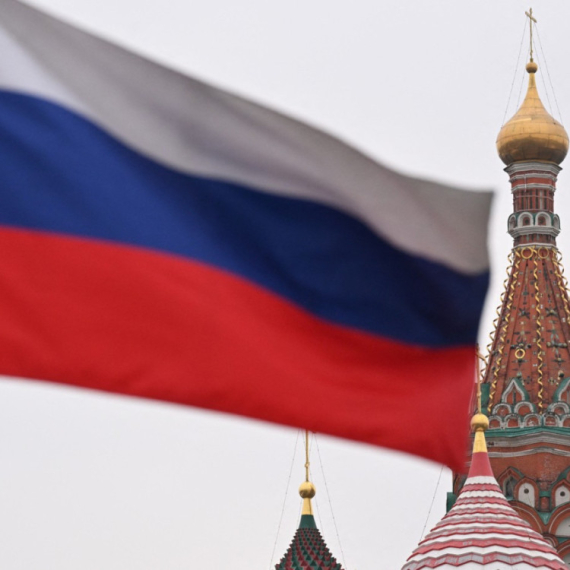Serbian "road map" revealed
Serbia’s “road map” to visa regime abolishment envisages meeting criteria in four areas: document security, immigration, public order, and foreign affairs.
Monday, 28.04.2008.
11:00

Serbia’s “road map” to visa regime abolishment envisages meeting criteria in four areas: document security, immigration, public order, and foreign affairs. Existing agreements on visa relaxations and readmissions also need to be applied, according to the “road map” on visa liberalization seen by Tanjug, which will be presented to Serbian officials on May 7 by European Commission (EC) Vice-President Jacques Barot. Serbian "road map" revealed The document defines concrete measures that Serbia needs to adopt for its citizens to be exempt from visas when entering EU member-states. The document’s final version was agreed on this week at a meeting of the EU Council’s Committee for the Western Balkans. Should Belgrade accept the platform offered, talks on visa liberalization could begin immediately, and the aim is for the conditions to be fulfilled over the course of 2009. Visa abolishment measures would come into force once the EU Council approved, with a qualified majority, a proposal on visa liberalization that the EC would put forward upon completion of all the criteria defined in the “road map”. In the absence of the Stabilization and Association Agreement (SAA), the process’s progress would be monitored via “increased permanent dialogue” between Belgrade and Brussels. The first set of issues referred to in the “road map” relate to document security, specifically that of passports and ID cards. Here, Serbia should begin issuing biometric passports in line with EC and International Civil Aviation Organization standards, which include biometric data for photos and fingerprints. The authorities should also improve the security of these documents and their issue, and regularly inform Interpol of stolen or lost passports. The second area covered by the “road map” is illegal immigration and readmission. From the point of view of controling frontiers, it is necessary to adopt a law on border crossing and control, and to implement a series of budgetary and administrative measures to ensure that borders are technically well equipped. Serbia should also adopt and apply legislation on asylum in line with the 1951 Geneva Convention and the EU’s legal framework and standards. Special attention should be devoted to a mechanism for monitoring migration, including details on illegal and legal migration, and preventing and investigating organized illegal migration. The third group of issues concerns public order and security. With a view to tackling organized crime and corruption, Serbia needs to apply a strategy, and adopt and apply an action plan with that aim in mind. Other measures include: a strategy to be applied to tackle human trafficking, as well as a national strategy for dealing with money laundering and financing terrorism; adoption of a law preventing financing of terrorism; laws on the seizure of criminals’ property; and adoption and preparation of a national strategy for tackling drug trafficking. Serbia also needs to prepare a law on tackling corruption by creating an independent anti-corruption agency. The Serbian judiciary and police should also improve cooperation with countries in the region and the EU in fighting crime. The fourth area, “Foreign Affairs”, envisages guarantees of freedom of movement for all Serbian citizens, issuing of travel and personal documents to all citizens without any discrimination of minority groups, displaced persons or refugees. The “road map” highlights the need to clarify conditions for acquiring Serbian citizenship. The EC will propose similar measures to the other Western Balkan countries, and accession to the Schengen White List will be measured by each country’s success in meeting the set criteria.
Serbian "road map" revealed
The document defines concrete measures that Serbia needs to adopt for its citizens to be exempt from visas when entering EU member-states.The document’s final version was agreed on this week at a meeting of the EU Council’s Committee for the Western Balkans.
Should Belgrade accept the platform offered, talks on visa liberalization could begin immediately, and the aim is for the conditions to be fulfilled over the course of 2009.
Visa abolishment measures would come into force once the EU Council approved, with a qualified majority, a proposal on visa liberalization that the EC would put forward upon completion of all the criteria defined in the “road map”.
In the absence of the Stabilization and Association Agreement (SAA), the process’s progress would be monitored via “increased permanent dialogue” between Belgrade and Brussels.
The first set of issues referred to in the “road map” relate to document security, specifically that of passports and ID cards.
Here, Serbia should begin issuing biometric passports in line with EC and International Civil Aviation Organization standards, which include biometric data for photos and fingerprints.
The authorities should also improve the security of these documents and their issue, and regularly inform Interpol of stolen or lost passports.
The second area covered by the “road map” is illegal immigration and readmission.
From the point of view of controling frontiers, it is necessary to adopt a law on border crossing and control, and to implement a series of budgetary and administrative measures to ensure that borders are technically well equipped.
Serbia should also adopt and apply legislation on asylum in line with the 1951 Geneva Convention and the EU’s legal framework and standards.
Special attention should be devoted to a mechanism for monitoring migration, including details on illegal and legal migration, and preventing and investigating organized illegal migration.
The third group of issues concerns public order and security.
With a view to tackling organized crime and corruption, Serbia needs to apply a strategy, and adopt and apply an action plan with that aim in mind.
Other measures include: a strategy to be applied to tackle human trafficking, as well as a national strategy for dealing with money laundering and financing terrorism; adoption of a law preventing financing of terrorism; laws on the seizure of criminals’ property; and adoption and preparation of a national strategy for tackling drug trafficking.
Serbia also needs to prepare a law on tackling corruption by creating an independent anti-corruption agency.
The Serbian judiciary and police should also improve cooperation with countries in the region and the EU in fighting crime.
The fourth area, “Foreign Affairs”, envisages guarantees of freedom of movement for all Serbian citizens, issuing of travel and personal documents to all citizens without any discrimination of minority groups, displaced persons or refugees.
The “road map” highlights the need to clarify conditions for acquiring Serbian citizenship.
The EC will propose similar measures to the other Western Balkan countries, and accession to the Schengen White List will be measured by each country’s success in meeting the set criteria.
















































Komentari 5
Pogledaj komentare